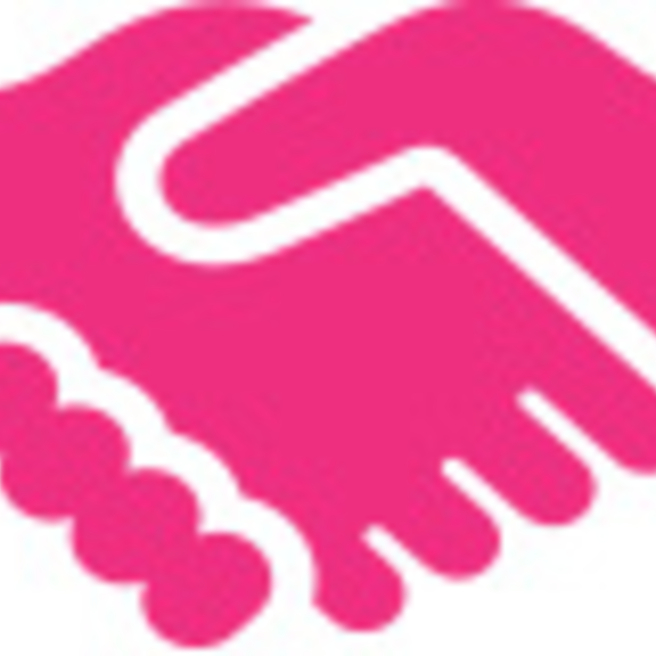What is leukemia?
Leukemia is cancer of the blood. Blood is made in a part of the body called bone marrow. The bone marrow is the soft, spongy center of certain bones. There are three main types of blood cells.
- White blood cells fight infections.
- Red blood cells carry oxygen from the air we breathe.
- Platelets help stop bleeding.
Leukemia is a cancer of white blood cells. Leukemia cells grow too fast and fill up the bone marrow. They crowd out the good blood cells. Because they crowd out the good blood cells, there are less healthy white blood cells to fight infections.
Children with leukemia can have fevers and trouble fighting infections. There are less healthy red blood cells to carry oxygen. Children with leukemia can be pale and tired. There are less platelets to stop bleeding. Children with leukemia can bruise and bleed easily.
Who is affected by leukemia?
Leukemia is the most common cancer in children. It affects approximately 4,000 children each year in the U.S. One in three children with cancer has leukemia.
There are different types of leukemia. The most common in children is acute lymphoblastic leukemia (ALL). Most children with ALL are between the ages of 2 and 4 years. Acute myelogenous leukemia (AML) is the second most common type of leukemia in children. AML is usually seen in very young children and teenagers. Other types of leukemia are rarely seen in children.
Causes
Little is known about the causes of childhood leukemia. Many things have been shown NOT to cause leukemia. Leukemia is not caused by food or drink. It is not caused by the air we breathe. It is not caused by power lines or cell phones. You can’t catch leukemia.
Most of the time leukemia is not genetic. This means it does not come from your parents. Having a brother or sister with leukemia can very rarely increase your risk of having leukemia.
The immune system is the part of the body that fights infection. The immune system helps our bodies fight cancer. Scientists believe that changes in the immune system may increase the risk for developing leukemia.
Children who get chemotherapy or radiation to treat other types of cancer have an increased risk of developing leukemia later on.
Children with certain genetic conditions, such as Down syndrome or Li-Fraumeni syndrome, are at increased risk of developing leukemia.
Types
There are 3 main types of leukemia in children:
- Acute lymphoblastic leukemia (ALL)
- Acute myelogenous leukemia (AML)
- Chronic myelogenous leukemia (CML)
The pluripotent stem cell is the first stage of development of all of the blood cells (white blood cells, red blood cells, and platelets). This stem cell goes through stages of development until it matures into a functioning cell. The type of leukemia is determined by where the cell is in the stage of development when it becomes malignant, or cancerous.
The stem cell matures into either the lymphoid or myeloid cells. The lymphoid cells mature into either B-lymphocytes or T-lymphocytes. If the leukemia is among these cells, it is called acute lymphoblastic leukemia (ALL). If the leukemia is found even further along this stage of development, it can be further classified as B-cell ALL or T-cell ALL. The more mature the cell, the more difficult it is to treat.
The myeloid cells develop into platelets, red blood cells, and specialized white blood cells, such as neutrophils and macrophages. There are many classifications of AML. The type of leukemia is determined by the type of blood cell that is affected and the the stage of development when the normal cells become leukemia cells.
Symptoms
Because leukemia is cancer of the blood-forming tissue called the bone marrow, the initial symptoms are often related to irregular bone marrow function. The bone marrow is responsible for producing most of the body's blood cells, including the red blood cells, white blood cells, and platelets.
When leukemia occurs, the abnormal cells (blasts) begin to reproduce very rapidly and begin crowding out and competing for nutrients and space with the other healthy cells. The following are the most common symptoms of leukemia. However, each child may experience symptoms differently. Symptoms may include:
- Anemia. When red blood cells are unable to be produced because of the crowding in the marrow, anemia is present. With anemia, the child may appear tired, and pale, and may breathe faster to compensate for the decrease in oxygen-carrying capacity. The number of red blood cells on a blood count will be below normal.
- Bleeding and/or bruising. When platelets are unable to be produced because of the crowding in the marrow, bleeding can occur and the child may begin to bruise more easily. Petechiae are tiny red dots often seen on the skin of a child with low number of platelets. Petechiae are very small blood vessels that have leaked or bled. The number of platelets on a blood count will be below normal. Thrombocytopenia is the term used for a decreased number of platelets.
- Recurrent infections. Although there may be an unusually high number of white blood cells on the blood count of a child with leukemia, these white blood cells are immature and do not fight infection. The child may have had repetitive viral or bacterial infections over the past few weeks. The child with leukemia often shows symptoms of an infection such as fever, runny nose, and cough.
- Bone and joint pain. Pain in bones and joints is another common symptom of leukemia. This pain is usually a result of the bone marrow being overcrowded and full.
- Abdominal distress. Abdominal pain may also be a symptom of leukemia. Leukemia cells can collect in the kidney, liver, and spleen, causing enlargement of these organs. Pain in the abdomen may cause a child to have a loss of appetite and weight loss.
- Swollen lymph nodes. The child may also have swelling in the lymph nodes under the arms, in the groin, chest, or in the neck. Lymph nodes are responsible for filtering the blood. Leukemia cells may collect in the nodes, causing swelling.
- Difficulty breathing (dyspnea). With T-cell ALL, these leukemia cells tend to clump together around the thymus, a small organ just behind the breastbone. This mass of cells present in the middle of the chest can cause pain and difficulty breathing (dyspnea). Wheezing, coughing, and/or painful breathing require immediate medical attention.
With acute leukemia (ALL or AML), these symptoms may occur suddenly in a matter of days or weeks. With chronic leukemia (CML), these symptoms may develop slowly over months to years.
It is important to understand that the symptoms of leukemia may resemble other blood disorders or medical problems. These are common symptoms of the disease, but do not include all possible symptoms. Children may experience symptoms differently. Always consult your child's doctor for a diagnosis.
Diagnosis
In addition to a complete medical history and physical examination, diagnostic procedures for leukemia may include:
- Bone marrow aspiration and/or biopsy. A procedure that involves taking a small amount of bone marrow fluid (aspiration) and/or solid bone marrow tissue (called a core biopsy), usually from the hip bones, to be examined for the number, size, and maturity of blood cells and/or abnormal cells.
- Complete blood count (CBC). A measurement of size, number, and maturity of different blood cells in a specific volume of blood.
- Additional blood tests. These may include blood chemistries, evaluation of liver and kidney functions, and genetic studies.
- Computed tomography scan (also called a CT or CAT scan). A noninvasive diagnostic imaging procedure that uses a combination of X-rays and computer technology to produce horizontal, or axial, images (often called slices) of the body. CT scans are more detailed than general X-rays.
- Magnetic resonance imaging (MRI). A diagnostic procedure that uses a combination of large magnets, radiofrequencies, and a computer to produce detailed images of organs and structures within the body.
- X-ray. A diagnostic test that uses invisible electromagnetic energy beams to produce images of internal tissues, bones, and organs onto film.
- Ultrasound (also called sonography). A diagnostic imaging technique that uses high-frequency sound waves and a computer to create images of blood vessels, tissues, and organs. Ultrasounds are used to view internal organs as they function, and to assess blood flow through various vessels.
- Lymph node biopsy. A sample of tissue is removed from the lymph node and examined under a microscope.
- Spinal tap/lumbar puncture. A special hollow needle is placed into the lower back, into the spinal canal. This is the area around the spinal cord. The pressure in the spinal canal and brain can then be measured. A small amount of cerebral spinal fluid (CSF) can be removed and sent for testing to determine if there are leukemia cells, an infection, or other problems. CSF is the fluid that bathes your child's brain and spinal cord.
Treatment
Specific treatment for leukemia will be determined by your child's doctor based on:
- Your child's age, overall health, and medical history
- The type of leukemia and other factors, such as chromosome changes in the leukemia cells
- The extent of the disease
- Your child's tolerance for certain medications, procedures, or therapies
- Expectations for the course of the disease
- Your opinion or preference
Treatment usually begins by addressing the presenting symptoms such as anemia, bleeding, and/or infection. In addition, treatment for leukemia may include (alone or in combination) the following:
- Chemotherapy
- Intrathecal medications/chemotherapy (medications are inserted through a needle into the spinal cord to help prevent or treat leukemia in the brain or spinal cord)
- Radiation therapy
- Bone marrow transplantation or peripheral blood stem cell transplantation (also known as a stem cell transplant)
- Targeted therapy
- Surgery (rarely)
- Medications (to prevent or treat damage to other systems of the body caused by leukemia treatment)
- Medications (for nausea and side effects of treatment)
- Blood transfusions (red blood cells, platelets)
- Antibiotics (to prevent or treat infections)
- Continuous follow-up care (to determine response to treatment, detect recurrent disease, and manage late effects of treatment)
What are the various stages of leukemia treatment?
There are various stages in the treatment of acute leukemia, including the following:
- Induction. A combination of chemotherapy and/or radiation and medications given to stop the process of abnormal cells being made in the bone marrow. Remission is the goal in this stage of treatment. Remission means the leukemia cells are no longer being made and can no longer be detected, although this is not necessarily a cure. This phase may last approximately one month and can be repeated if the goal is not achieved.
- Intensification (consolidation). Continued chemotherapy treatment (usually for a couple of months) even though leukemia cells may not be visible. The leukemia cells may not be visible in a blood test or bone marrow examination, but it is possible that the cells are still present in the body. For some children with high-risk leukemia, the doctor may recommend high-dose chemotherapy with a stem cell transplant at this time.
- Maintenance. The stage that maintains leukemia-free bone marrow by continuing less intense chemotherapy for a longer duration. This phase is used for ALL but not for AML. It can last months to several years. Regular visits to your child's doctor are required in order to determine response to treatment, detect any recurrent disease, and manage any side effects of the treatment.
Relapse may occur even with aggressive therapy. Relapse is when the bone marrow begins making abnormal cells again. Relapse can occur during any of the stages of treatment, or may occur months or years after treatment has ended.
Treatment for chronic myelogenous leukemia may begin with a targeted therapy drug, which is taken daily as a pill. These drugs are usually very effective at keeping the leukemia under control, but because they do not cure it and they must be taken continuously, the doctor may recommend a stem cell transplant, if one can be done.

Get a Second Opinion from CHOP
Our experts are here to review your child's diagnosis and treatment plan, and work with primary oncologists as needed
Long-term outlook
The prognosis greatly depends on:
- The type and extent of the disease
- Disease response to treatment
- Genetics
- Age and overall health of the child
- Your child's tolerance of specific medications, procedures, or therapies
- New developments in treatment
As with any cancer, prognosis and long-term survival can vary greatly from child to child. Prompt medical attention and aggressive therapy are important for the best prognosis. Continuous follow-up care is essential for the child diagnosed with leukemia.
Side effects of radiation and chemotherapy, including second cancers, can occur in survivors of leukemia. New methods are continually being discovered to improve treatment and to decrease side effects of the treatment for the disease.
Resources to help
Pediatric Leukemias Resources
Leukemia and Lymphoma Program Resources
We have created resources to help you find answers to your questions and feel confident with the care you are providing your child at home.
Reviewed by David T. Teachey, MD


